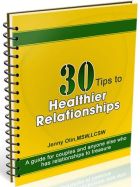Many of my therapy/counseling clients know I discourage thinking and speaking in absolutes or “black and white” (all or nothing, always or never). As a rule, in relationships this kind of thinking is inaccurate, unproductive, and worst of all, damaging. However, on rare occasions, like as I write to you now, there is a place for absolute thinking. Even I don’t always avoid it!
I can say with certainty that anyone who reads this has experienced relationship crises. It is inevitable. Faced with this certainty, how you prepare for crises and what you think and do during and after a crisis will determine how well you recover from it.
Once the initial shock of a relationship crisis passes, people usually respond with some combination of hurt, fear, and anger. This is normal. So what do you choose to think and do next? How do you want it to affect the rest of your life?
Recently I read Antifragile: Things that Gain from Disorder by Nassim Nicholas Taleb. Although not a book specifically about interpersonal relationships, it offers direct insight into the three ways people respond to relationship crises: fragility, resilience, and antifragility.
- Fragility. Something fragile easily breaks or falls apart under unexpected stress or shock. It doesn’t recover or become whole again. You and/or your relationship may have learned fragility as a response to crisis. After a crisis, neither you nor your relationship fully recovers. You function below the level you experienced before the crisis. Future events in relationships are affected negatively because you see and interpret them through glasses distorted by fragility.
- Resilience. Something resilient is flexible and durable in response to unexpected stress or shock. Once the crisis passes, it becomes whole and stable again. It functions the same as before the crisis. A resilient person and a resilient relationship returns to the level of functioning lived before the crisis. Nothing is lost; nothing is gained. The outcome is neutral.
- Antifragility. Something antifragile is the true opposite of fragile. It benefits from unexpected stress or shock. When they are antifragile, individuals and relationships become healthier and stronger from a crisis than they could achieve if they never experienced the crisis.
When you are of fragility, resilience, and antifragility, you can identify your usual response under stress or unexpected shock. Which response do you have? Do you want merely to recover from a crisis? Or, since it happened, do you want to receive a positive payoff from the experience? If you discover you respond with fragility (becoming worse off than before) or resilience (experiencing no loss or benefit), you can choose to stretch yourself to make something good out of the crisis and learn antifragility.
A key concept in Antifragile is the occurrence of a crisis now and then can strengthen and make something better than before. The author (and I) does not recommend creating crisis to give you the opportunity to grow. Unexpected stress or shock happens naturally and unavoidably.
You can prepare for the inevitable crisis by choosing, in advance, to learn proven, successful tools to manage and get through the initial and later effects of a crisis. Relationship education through reading, workshops, and professional coaching are ways to learn these tools.
Although choosing antifragility can have extraordinary results, is not necessarily an easy road for awhile. The process of becoming stronger than before the crisis may take great effort and a long time. Even after taking preventative steps to learn how to survive crisis, once in the middle of it you may value from having additional proven, successful relationship tools and/or a skilled relationship counselor. It is healthy and wise to use all the support and education available to you as you strive for antifragility. In choosing this path, it is critical you don’t throw in the towel five minutes before you would otherwise see the results of your efforts.
Antifragile: Things that Gain from Disorder by Nassim Nicholas Taleb, is a long, comprehensive, detailed book. The main concepts are explained in the introduction, while the rest of the book goes into depth in many areas including people, the body, technology, business, economics, politics, health systems, and how each have, have not, and can respond to antifragility.
“A picture is worth a thousand words”
The Japanese art form Kintsugi or is a practice in antifragility. It takes broken pottery, mends it with a lacquer resin sprinkled with powdered gold, and turns it into something with a new beauty that was not possible before the break. I invite you to take a moment to check out a photo of Kintsugi. You may find this picture helpful in seeing how something rises above brokenness, transforms into something different from the original that is stronger and better than before. That is antifragility.



 Posted by Jenny Olin, LCSW
Posted by Jenny Olin, LCSW 
